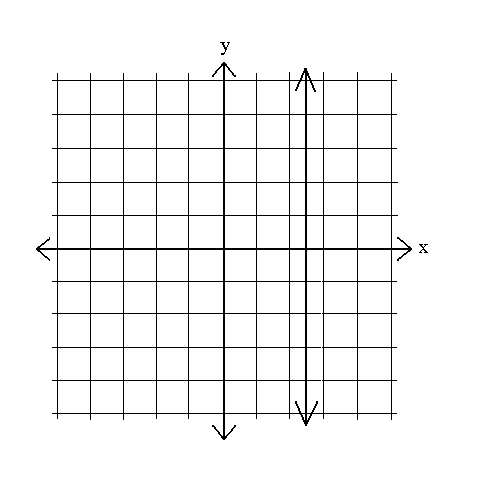Which of the following ordered pair is NOT a function?
a. (1, 2) (3, 6) (6, 10) b. (4, 6) (7, 9) (10, 11)
c. (3, -2) (3, 2) (1, 2) d. none of the above
c.
y= 5x+10
x= 2
20
(4x2+2x-5) + (6x2 - x - 5)
10x2 + x - 10
f(x)= 3x+6
y= x/3 - 2
define absolute value?
absolute value is distance from zero
The following ordered pairs is a function >> (-2, 3) (2, 3) (1, 3)
True or False
True
y= 9x-12
x=5
33
(2x2 - 3x + 7) - (5x2 + 3x + 6)
-3x2 - 6x + 1
y=x-7/2
y= 2x+7
x = -5
 True or False, this is a function?
True or False, this is a function?
False
What is (h+j)(6) if h(x)= x2+10 and j(x)= x+3
55
(x + 3)(x-12)
x2 - 9x - 36
8x-6y=24
y=3/4x+3
l x + 5 l = -7
NO SOLUTION

What is the range of the relation shown on the mapping diagram?
R:{3, 5, 8}
R:{-7, 11}
R:{3, 5, 8, 12}
R:{all real numbers}
{3, 5, 8}

x-5
(b+4)2
b2 + 8b + 16
f(x)=2/3x+6
y=3/2x-9
l 2x + 3 l / 9 < 3
x < 12
x > -15
Which graph does NOT pass the vertical line test?
Graph 2
Graph 1
Graph 4
Graph 3
Graph 1
g(t)= t2+3
h(t)= 4t-3
Find (g*h) (-1)
-28
(3p - 4q) (p + q)
4bp +3bq - 4ap - 4aq
f(x)=x2-26
y= √x=26
Name the 3 steps for solving absolute value equations?
1. Isolate l l by getting rid of everything else
2. Make 2 equations and solve them
3. Check your solutions
